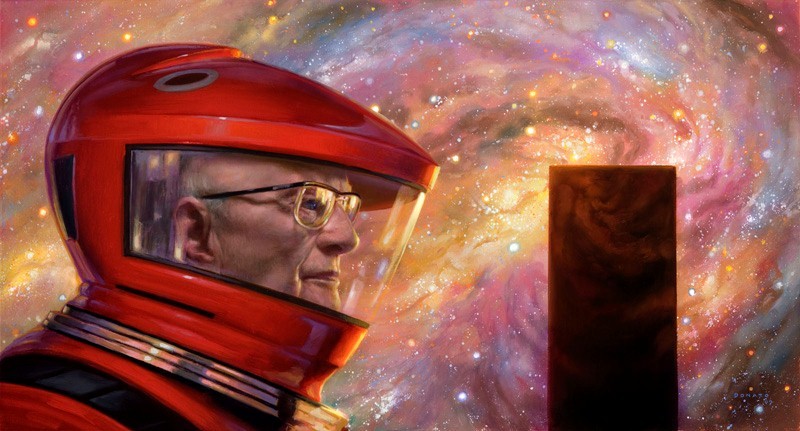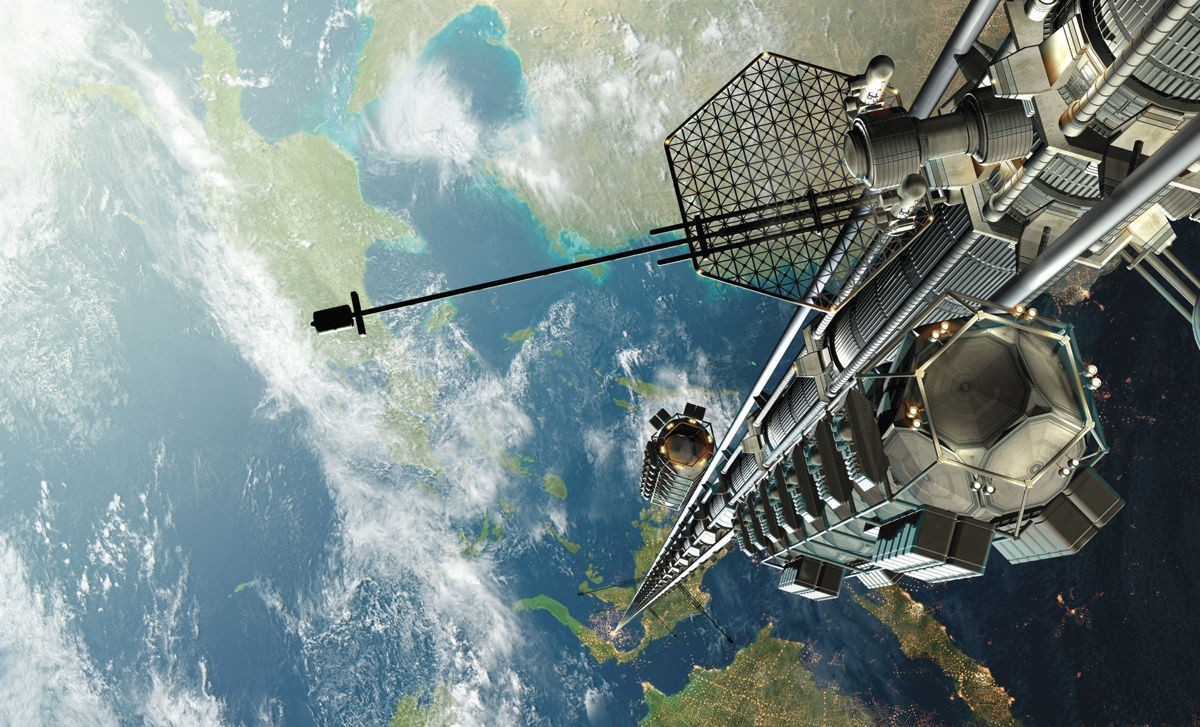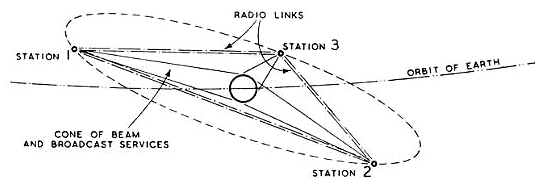The magic of technology and Sir Arthur

Today without a year is a round date - 99 years since the birth of one of the classics of science fiction and really beautiful writer Arthur Charles Clark. And although he is no longer alive, his multifaceted legacy is not just honored, but also affects the lives of billions of people who are unaware of his role.
The future pillar of fiction began to write quite early, at the age of 20, and did not stop until his death. Over 70 years of writing career, Clark wrote a lot of novels, short stories and short stories. During the war years he participated in the practical development of an airborne radar that facilitates piloting in difficult weather conditions, and after demobilization Clark graduated from a prestigious educational institution in London, where he studied physics and mathematics. At the same time, the future knight-bachelor gained fame thanks in large part to his visionary view of the future of mankind and technology.
For examples do not have to go far. Raise your hand, who at least did not hear, not that you did not watch, the film “ Space Odyssey of 2001 ”?
')
The film itself was shot in 1968 based on Clark's The Sentinel. However, the writer himself said that the story was rather the starting point, and most of the plot was invented by him along with Kubrick. In the same year, but after the release of the film, a novel of the same name came out, based on the script revised by Clark.
Also, many lovers of science fiction are also aware of the remarkable novel “ A Date with Rama ”: an artificial cylinder entered the limits of the Solar System. Arriving at the study, people discovered that the cylinder is a celestial body, intended for a huge colony, with its own atmosphere, hydrosphere and biosphere.

Surely, many will recall the novel “ The End of Childhood ”, which highlights the idea of the appearance of an alien race that begins to dictate the further development of humanity, giving it incredible technical benefits, but at the same time strictly controlling its development. Recently, the novel was filmed eponymous series .
If you are interested in astronautics, then surely you are familiar with the idea of a space elevator. It is possible that if it were not for Clark with his novel “The Fountains of Paradise ”, dedicated to the construction of this mega-construction, this idea would still have wandered only in narrow circles.

Of course, the works of Clark are interesting primarily for their plots. But quite often he predicted the concepts of gadgets, devices and equipment that were later actually realized in life. For example, in the same 2001 Odyssey novel, Clark prophesied:
- The appearance of the tablet with the ability to read electronic newspapers. And you thought Jobs was such a genius who invented an iPad?
- By 2001, the computer was able to defeat a man in chess. As we know, this happened in 1997.
- The emergence of handheld personal computers. Later this term was first applied to Apple Newton.
- Bombardment of a comet (in the novel - an asteroid) with a probe (metal bar) to study the chemical composition.
- The study of the atmosphere of Jupiter using the descent vehicle.

However, Sir Arthur is famous not only for literary predictions: in 1945 he expressed the idea of creating a network of geostationary communications satellites.

Since then, in Western literature, the geostationary orbit is sometimes referred to as the Clark orbit or the Clark belt. The first such satellite was launched in almost 20 years. Today, the importance of geostationary communications satellites is difficult to overestimate — millions and millions of people use them directly and indirectly every day, not to mention how many lives depend on vehicles flying at a distance of almost 36,000 km from Earth.
In 1957, the USSR launched the world's first artificial satellite, but three years before Arthur Clark came up with the idea that in the future it would be possible to track weather from satellites. Today, remote sensing of the atmosphere is one of the key tools for generating more or less reliable weather forecasts.
As Sir Arthur wrote back in 1962: "Any sufficiently advanced technology is indistinguishable from magic." Looking at our technological ecosystem, it is difficult to argue with him. We can, peacefully snuffling in the chair, fly in the sky at a great height. With a few flicks of the fingers we can put any information into our palm. Cinema today is capable of incredibly reliably showing any fantasy that has come into the inflamed brain of the screenwriter. We build huge factories where only a few people are needed just to look after the machines, tirelessly creating for us all sorts of benefits. Already today, passenger airliners fly most of the route without human intervention, and soon we will be driven by cars that do not need a driver. Is this not magic?
Source: https://habr.com/ru/post/400109/
All Articles